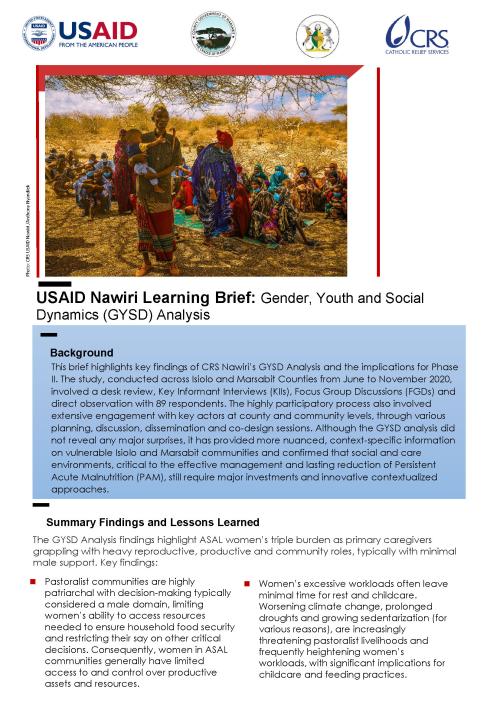This analysis identified context-specific information on vulnerable communities. It involved a desk review, key informant interviews, focus group discussions, and direct observations. The highly participatory process also involved extensive engagement with key actors at county and community levels through planning, discussion, dissemination. and co-design sessions. The findings confirmed knowledge about gender, youth, and social dynamics, including highlighting women’s triple burden as primary caregivers grappling with heavy reproductive, productive, and community roles, often with minimal male support. Pastoralist communities were identified as highly patriarchal with deeply rooted socio-cultural beliefs and practices that diminish women’s and girls’ health and well-being. The analysis identified community assets, including traditional birth attendants and elderly women, that could be built upon in programs. Current nutrition programming in this context needs further tailoring to meet the needs of women, youth, and other marginalized groups.
Learning Brief
Full Report(s)
